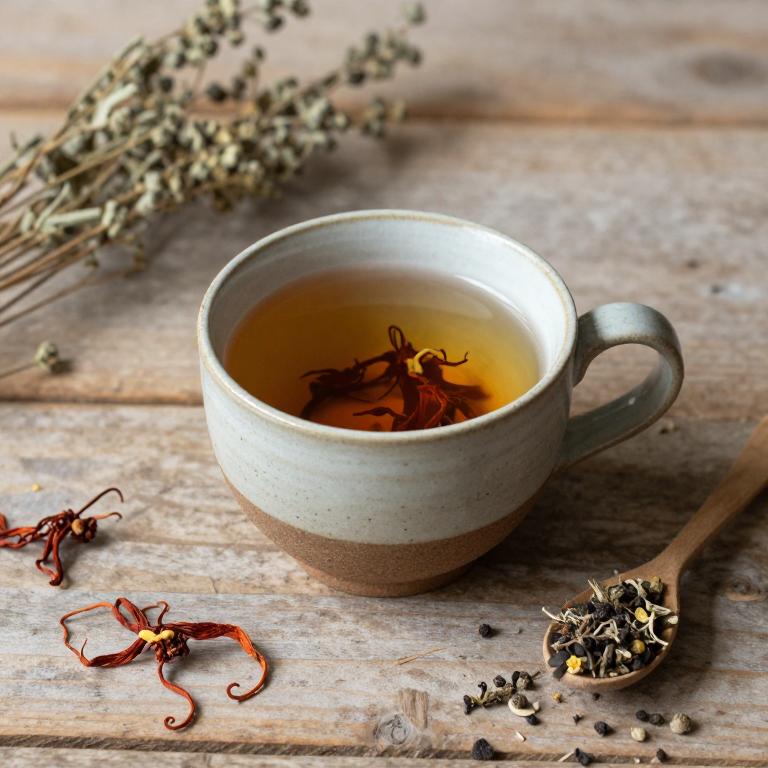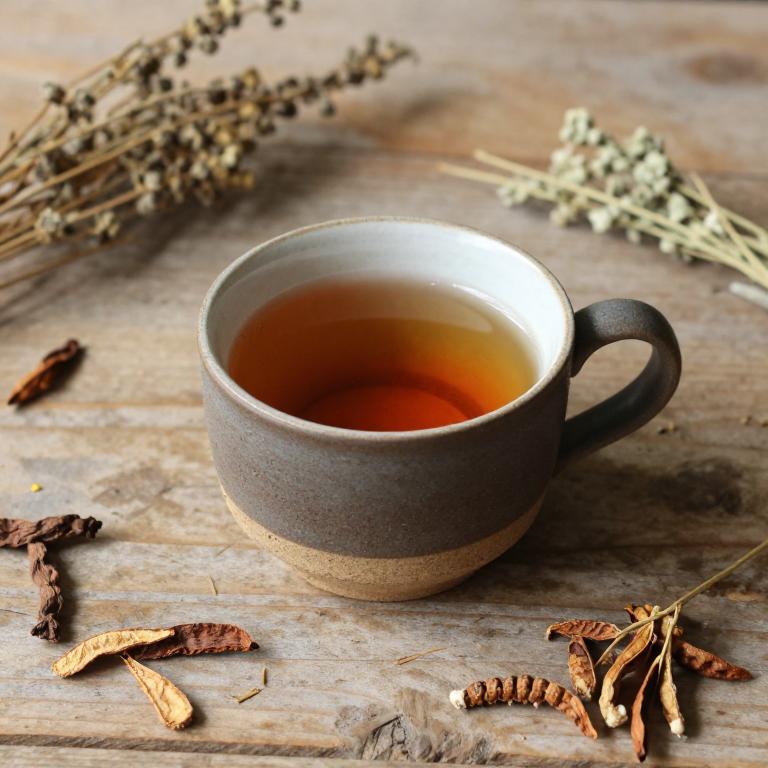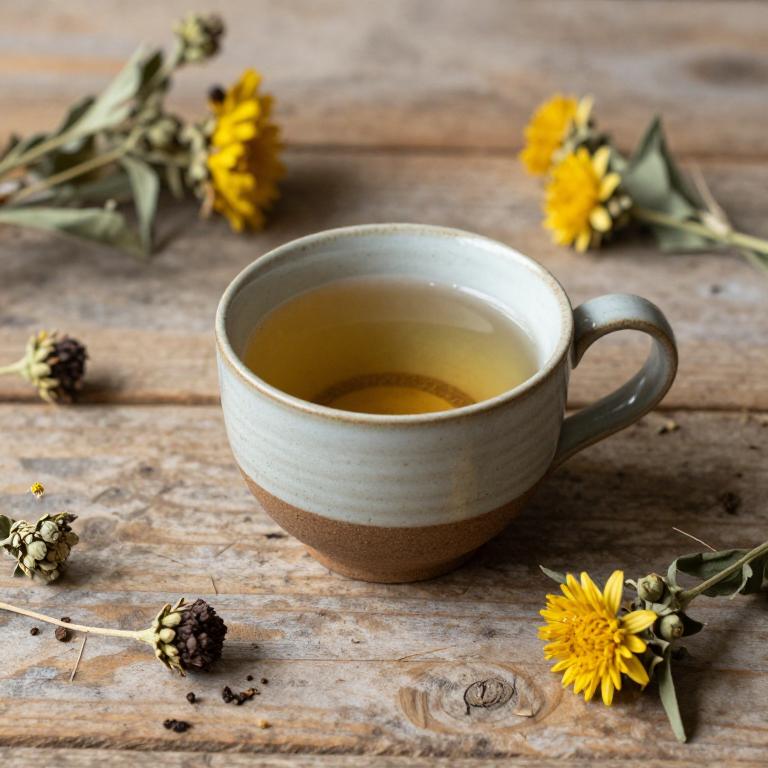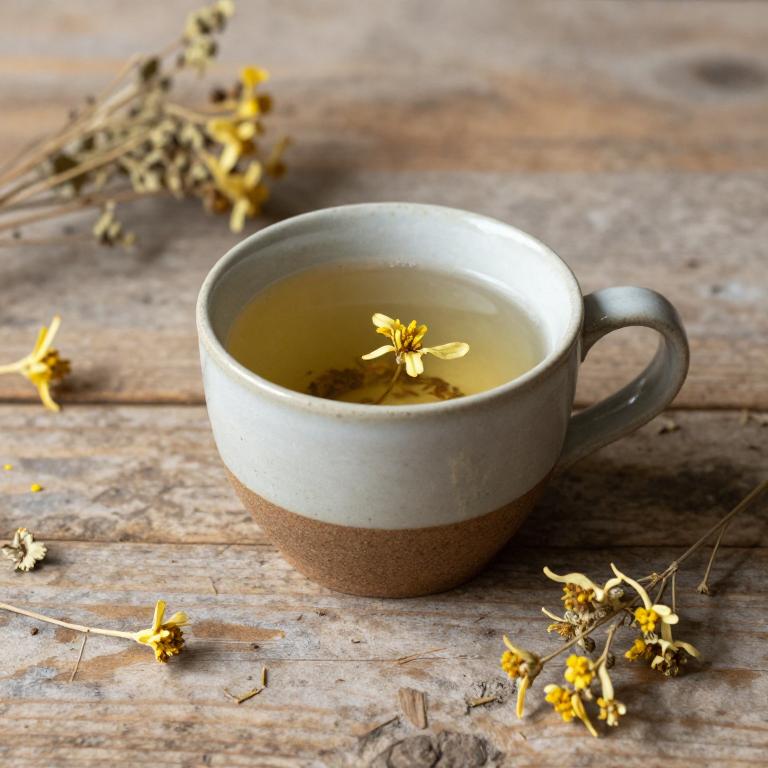10 Best Herbal Teas For Fatigue

Herbal teas are a natural and soothing way to combat fatigue, offering a gentle alternative to stimulants like caffeine.
Ingredients such as chamomile, valerian root, and lemon balm are commonly used for their calming and restorative properties. These teas can help reduce mental exhaustion and promote a sense of calm, making them ideal for evenings or stressful days. Unlike coffee, herbal teas often provide sustained energy without the jitters or crash associated with high caffeine intake.
Incorporating herbal teas into a daily routine can support overall wellness and help manage fatigue in a holistic manner.
Table of Contents
- 1. Golden root (Rhodiola rosea)
- 2. Ashwagandha (Withania somnifera)
- 3. Echinacea (Echinacea purpurea)
- 4. Camellia (Camellia sinensis)
- 5. Heartworts (Leonurus cardiaca)
- 6. Stinging nettle (Urtica dioica)
- 7. Salvia (Salvia officinalis)
- 8. Valerian (Valeriana officinalis)
- 9. Chaste tree (Vitex agnus-castus)
- 10. Blessed thistle (Cnicus benedictus)
1. Golden root (Rhodiola rosea)

Rhodiola rosea, also known as the "golden root," is a powerful adaptogenic herb that has been traditionally used to combat fatigue and enhance physical and mental performance.
Herbal teas made from Rhodiola rosea are gaining popularity due to their natural ability to help the body resist stress and improve energy levels. These teas are rich in antioxidants and phytochemicals that support the adrenal glands and promote a balanced response to stress. Regular consumption of Rhodiola rosea tea may help reduce feelings of exhaustion and improve overall vitality, making it a beneficial addition to a wellness routine.
However, it is important to consult with a healthcare professional before incorporating it into your regimen, especially if you have existing health conditions or are taking medications.
2. Ashwagandha (Withania somnifera)

Withania somnifera, commonly known as Ashwagandha, is a popular herbal remedy used in traditional Ayurvedic medicine for its adaptogenic properties that help the body manage stress and fatigue.
When brewed into a herbal tea, Ashwagandha is believed to support energy levels by regulating the body's stress response and promoting a sense of calm. The bioactive compounds in Ashwagandha, such as withanolides, may enhance physical endurance and reduce mental fatigue by improving sleep quality and hormonal balance. Regular consumption of Ashwagandha tea may also support immune function and overall well-being, making it a natural option for those seeking to combat daily exhaustion.
However, it is important to consult with a healthcare provider before incorporating it into one's routine, especially for individuals with existing health conditions or those taking medications.
3. Echinacea (Echinacea purpurea)

Echinacea purpurea, commonly known as purple coneflower, is a popular herbal remedy often used to support immune function and alleviate fatigue.
While primarily recognized for its immune-boosting properties, some studies suggest that echinacea may help reduce feelings of tiredness by increasing energy levels and improving overall vitality. Herbal teas made from echinacea are typically prepared by steeping the dried flowers and leaves in hot water, allowing the active compounds to infuse into the liquid. However, it is important to note that the effects of echinacea on fatigue can vary among individuals, and it is best used as a complementary therapy rather than a standalone treatment.
As with any herbal supplement, it is advisable to consult a healthcare professional before incorporating echinacea into one's routine, especially for those with existing health conditions or who are taking medications.
4. Camellia (Camellia sinensis)

Camellia sinensis, the plant from which green, black, and white teas are derived, is known for its potential to combat fatigue due to its rich content of antioxidants and caffeine.
The caffeine in Camellia sinensis acts as a mild stimulant, helping to increase alertness and energy levels by stimulating the central nervous system. Additionally, the polyphenols present in these teas may enhance metabolic function and improve oxygen utilization, further supporting energy production. Some studies suggest that regular consumption of Camellia sinensis teas can help reduce mental and physical exhaustion by improving mood and reducing stress.
However, it is important to consume these teas in moderation to avoid overstimulation and potential side effects.
5. Heartworts (Leonurus cardiaca)

Leonurus cardiaca, commonly known as heart's-ease, is a traditional herbal remedy that has been used for centuries to help alleviate fatigue and improve overall vitality.
This flowering plant contains bioactive compounds such as flavonoids and tannins, which are believed to support energy levels and reduce mental and physical exhaustion. Herbal teas made from Leonurus cardiaca are typically prepared by steeping the dried leaves and flowers in hot water, resulting in a mild, slightly bitter infusion. Many people find that regular consumption of this tea helps enhance stamina and promote a sense of well-being, especially during periods of stress or prolonged activity.
While it is generally considered safe, it is advisable to consult a healthcare professional before using it, especially for those with existing medical conditions or who are taking other medications.
6. Stinging nettle (Urtica dioica)

Urtica dioica, commonly known as stinging nettle, is a potent herbal remedy that has been traditionally used to combat fatigue and boost energy levels.
This plant is rich in vitamins, minerals, and antioxidants, which support overall health and may help reduce feelings of exhaustion. When brewed into a tea, stinging nettle can provide a natural source of iron, magnesium, and B-vitamins, all of which are essential for maintaining energy levels and supporting metabolic functions. The mild, earthy flavor of nettle tea makes it a pleasant and accessible option for those seeking natural remedies for fatigue.
Regular consumption of urtica dioica tea may contribute to improved vitality and a more balanced sense of well-being.
7. Salvia (Salvia officinalis)

Salvia officinalis, commonly known as sage, has been traditionally used to make herbal teas that may help alleviate fatigue.
The plant contains compounds such as rosmarinic acid and flavonoids, which are believed to support energy levels and reduce mental exhaustion. Drinking sage tea is often associated with improving focus and reducing feelings of tiredness, making it a popular choice for those seeking natural remedies for fatigue. Its calming properties can also aid in reducing stress, which is a common contributor to fatigue.
While more research is needed, many individuals report feeling more alert and revitalized after consuming sage tea regularly.
8. Valerian (Valeriana officinalis)

Valeriana officinalis, commonly known as valerian, is a traditional herbal remedy often used to alleviate fatigue and promote relaxation.
Its roots contain compounds such as valerenic acid and essential oils that may help reduce mental and physical exhaustion by supporting nervous system function. Valerian tea is typically prepared by steeping dried roots in hot water, and it is often consumed in the evening to aid with sleep, which in turn can help combat fatigue. While research on its effectiveness for fatigue is limited, many users report improved energy levels and reduced stress after regular use.
As with any herbal supplement, it is advisable to consult a healthcare professional before incorporating valerian into a wellness routine.
9. Chaste tree (Vitex agnus-castus)

Vitex agnus-castus, commonly known as chasteberry, is a herbal remedy often used to support hormonal balance and alleviate symptoms of fatigue.
This herb is particularly popular among women, as it may help regulate menstrual cycles and reduce stress-related exhaustion. Vitex agnus-castus herbal teas are typically made from the dried berries of the plant and are often consumed in the evening to promote relaxation and improve sleep quality. Some studies suggest that vitex may influence the production of certain hormones, such as prolactin and luteinizing hormone, which can indirectly impact energy levels.
While it is generally considered safe for short-term use, it is advisable to consult a healthcare professional before incorporating it into a fatigue management routine.
10. Blessed thistle (Cnicus benedictus)

Cnicus benedictus, commonly known as blessed thistle, is a herbal remedy traditionally used to combat fatigue and enhance energy levels.
This herb contains compounds such as sesquiterpene lactones and mucilage, which are believed to support liver function and stimulate digestion, thereby improving overall vitality. Blessed thistle herbal tea is often consumed in the morning to provide a natural energy boost without the jitters associated with caffeine. It is particularly beneficial for individuals experiencing fatigue due to poor digestion or stress.
However, it is important to consult a healthcare provider before use, especially for those with allergies or existing medical conditions.